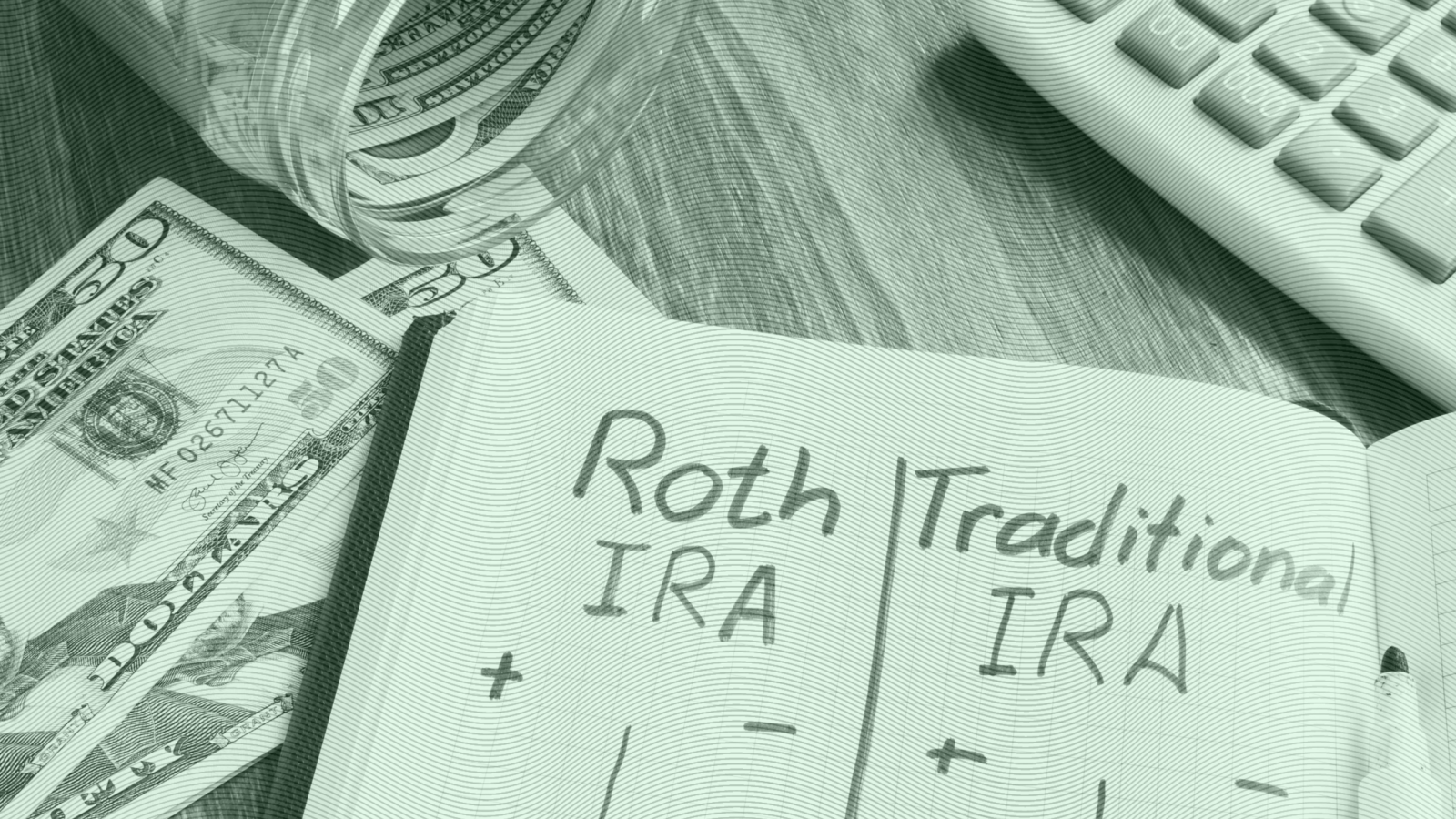What could be worse than a recession? Ray Dalio has an idea.
The Bridgewater founder and chief investment officer told NBC over the weekend that he’s worried America’s latest tariff policy could result in more than just an economic slowdown. Trade disruptions, mounting national debt, and a massive shift in global economic and political powers could upend the status quo that’s been in place since the end of World War II. “We are going from multilateralism, which is largely an American world order type of thing, to a unilateral world order, in which there’s great conflict,” Dalio said. He even added that the US could be on the verge of something graver than the 2008 financial crisis.
Oh, and … happy Tuesday everybody.
Is the Great Wealth Transfer Really All That Great?

It might be better to just call it, “The Wealth Transfer.”
While Americans are set to inherit a lot of money over the next two-plus decades, the impact of the Great Wealth Transfer might not be as monumental as originally expected. At the end of last year, Cerulli forecast $124 trillion would be passed down to heirs and charities through 2048. While some in the wealth industry agree with that figure, others believe it’s way off. How off? Try about $107 trillion.
“The wealth transfer is a mirage right now,” said Hearts & Wallets CEO Laura Varas. Her research firm predicted just $17.5 trillion will be transferred over the next 20 years, based on data gathered in 2023. “It’s very compelling and seductive. There is a watering hole, but it doesn’t look exactly like how people are making it out to be.”
Overblown?
Today, more than 80% of inheritors receive funds from smaller estates with assets of less than $500,000, according to the research. Just over half inherit less than $100,000. “It can go pretty quickly,” Varas told Advisor Upside. “It’s a windfall; you want to buy a new car or take a vacation.”
The hype surrounding the Great Wealth Transfer is similar to the retirement income market frenzy of the mid-2000s, she said. At the time, the financial services industry estimated the retirement income market, including retirement products like IRAs, pensions, 401(k)s, and annuities, would make up a sizable portion of consumers’ wealth. However, in 2006, US households’ investible assets totaled more than $25 trillion, and the retirement income market accounted for just over $1 trillion, or roughly 4.5%, of that.
Healthy Living. Thanks to advances in modern medicine, people are living longer, which is great. But that also means their retirement funds need to last longer. Americans used to prepare for 10 to 15 years of retirement, but now it’s closer to 25 to 30 years, said Cerity Partners Chief Growth Officer Todd Cassler. “We’re in the midst of a longevity revolution,” he told Advisor Upside. “Most clients are going to have to self-fund healthcare costs, drawing down assets they had mentally earmarked for legacy purposes.”
First Things First. Even advisors who agree with the $124 trillion wealth transfer estimate say individual inheritances won’t last long or have a lingering impact on recipients. “The wealth is not staying with that next gen,” said Matthew McKay, a CFP with Briaud Financial Partners. “I feel that more than half of the funds that are transferred each year from parent to child are not saved and are used for spending [or] consumption.”
Some argue boomers are more focused on themselves as opposed to leaving something behind for their children and grandkids. Dan Lash, a CFP with VLP Financial Advisors, said boomers’ goals are to have enough money to spend in their lifetime, without needing to rely on their adult children for financial assistance. “If their children get something, great, but otherwise it is not a priority,” he said.
Solid Wall Street Earnings Come with a Tariff Asterisk
What a wild way to kick off Q2.
Earnings reports from major financial institutions are generally a good barometer of the economy’s health. However, the Trump administration’s tariff policy sent equity markets nosediving in recent weeks, just as earnings season was getting underway for many firms. The latest results from Wall Street’s biggest names are already starting to feel like ancient history. Plus, uncertainty was a common theme in CEOs’ messages to shareholders.
“As long as we continue to see uncertainty on tariff policies, it will start to lessen demand for dealmaking, which will reduce bank revenues,” said industry analyst Vijay Raghavan.
Q1 in the Bag
The world’s largest asset manager, BlackRock, had its ups and downs in the first three months of 2025. While assets under management hit a record $11.58 trillion, up 11% from the previous year, profit dropped 4% year-over-year. CEO Larry Fink said “uncertainty and anxiety about the future of markets and the economy are dominating client conversations.”
Meanwhile, Goldman Sachs beat earnings estimates, generating revenue of more than $15 billion thanks to record hauls from equity trading, and profit that jumped to $4.74 billion. However, CEO David Solomon noted, “we are entering the second quarter with a markedly different operating environment than earlier this year.” Other notable reports included:
- JPMorgan, which reported profit of $14.6 billion, up 9% from a year prior. CEO Jamie Dimon said tariffs and potential trade wars have the economy facing “considerable turbulence.”
- Wells Fargo profit jumped 6% year-over-year in the first quarter to $4.9 billion, beating Wall Street’s estimates of $4 billion. In its earnings report, America’s fourth-largest bank said it supports the Trump administration’s “willingness to look at barriers to fair trade.”
- Wirehouse Morgan Stanley beat estimates thanks to record equity trading and strong wealth management results, with profits hitting $4.3 billion compared with $3.4 billion in Q1 2024.
While potential tax reforms and financial industry deregulation could provide a boost to markets, the environment will remain volatile, Raghavan told Advisor Upside. Future earnings results will probably reflect that, at least until tariff policies are clarified and finalized, he added.
- ETFs Are Breaking Records. Get the full breakdown today.
- How Can Advisors Incorporate Crypto Into Client Portfolios? Find out.
Sagging Markets Mean Roth Conversions Go on Sale

There’s more than one way to buy the dip.
For financial advisors everywhere, it’s an opportunity to talk about Roth conversions. Widely, investments have lost value this year, with the S&P 500 dropping 8% so far. By moving money from traditional, pre-tax IRAs and 401(k)s to Roth accounts and paying taxes now on a smaller base, clients can save some cheddar in the long run. But there are other factors to consider.
Extra Upside
- East Meets West. China has considered letting Western market makers into its $520 billion ETF sector, per Reuters.
- Tokenization Time. All your assets will be tokens on a blockchain soon enough, Larry Fink says.
- What Would You Do With 8 More Hours A Week? Automate note-taking, meeting admin, forms, CRM updates, and emails with Zocks’ 100% no-recording, privacy-first AI platform. Get started for free.*
* Partner
Advisor Upside is edited by Sean Allocca. You can find him on LinkedIn.
Advisor Upside is a publication of The Daily Upside. For any questions or comments, feel free to contact us at advisor@thedailyupside.com.
